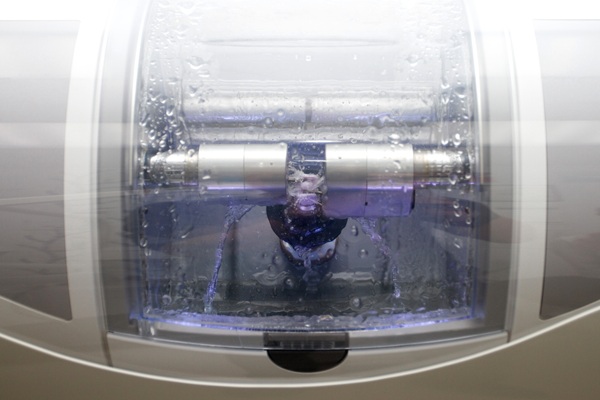Understanding the Stages of Gum Disease

Gum disease affects more than half of all adults in the United States, according to the International Journal of Health Sciences, and there are different forms of the condition. Gum disease is prevalent and one of the major causes of tooth loss. Therefore, it helps to understand the various stages of gum disease and its associated symptoms. Gum disease is a progressive ailment, starting from the early stages and advancing to the point where the damages are irreversible.
Gum disease stages
Periodontal disease, often known as gum disease, results from bacteria accumulating between the gums and teeth when plaque hardens into tartar. The stages of gum disease include the following.
Gingivitis
Gum disease starts with gingivitis, which is the early stage. Plaque and tartar build up over the gums and teeth, causing gingivitis. The bacteria present invade and infect the gums over time. Gum sensitivity and pain, gum discoloration, and bleeding while brushing or flossing are indications of this condition. Bad breath (halitosis) that persists after brushing and mouthwash usage is another symptom of bacteria accumulation.
Unlike the subsequent phases of gum disease, gingivitis is reversible. The dentist can perform a dental cleaning and prevent any lasting damage to the teeth and gums, as long as affected patients seek treatment as soon as they notice the signs.
Periodontitis
The intermediate stage of gum disease is periodontitis. At this stage, the infection has progressed to the point where the damages to the oral tissues are no longer reversible. The bacteria attack gum tissue and the support structure of the teeth, causing gum and bone tissue loss, which will not grow back.
Common periodontitis symptoms are soft and "spongy" gums, gum recession (which gives the teeth a longer appearance), highly sore gums, and discomfort while biting. It is advisable to get treatment as soon as possible once these symptoms become apparent.
Although periodontitis, unlike gingivitis, cannot be reversed, it is possible to halt its progression to preserve the remaining healthy teeth and maintain oral health. To keep the infection in check, patients will need to undergo regular periodontal cleanings.
Advanced periodontitis
Advanced periodontitis is the third stage of periodontal disease. At this point, the patient will have suffered irreversible damage to their gums and teeth due to the infection. This causes symptoms such as shifting teeth, loose teeth, pus accumulation between the gums and teeth, a bad taste in the oral cavity, severe chewing pain, and even complete tooth loss.
While extensive periodontal treatment and oral surgery may be able to preserve the teeth in rare cases, the majority of patients will need to have most or all of their teeth extracted and replaced with dentures. The risk of tooth loss is significantly higher in patients with advanced periodontitis.
How to prevent gum disease
Gum disease is preventable by maintaining excellent oral hygiene. However, this is not as straightforward as it may seem.
Patients may find it easier to avoid developing gum disease if they have no history of the condition or if they are not prone to it due to factors like genetics or hormonal changes. Keeping the teeth clean means brushing and flossing regularly, and visiting the dentist every six months for a checkup and cleaning.
Gingivitis, the earliest stage of gum disease, may be reversed and successfully "cured" even if it occurs. Until patients no longer have any evidence of gum disease, the dentist will carefully clean the teeth and gums and keep track of their condition. The dentist or dental hygienist can demonstrate how to clean the teeth properly.
Keeping up with frequent cleanings is essential once the first treatment is over. In order to successfully deal with the amount of oral bacteria present, some individuals need cleanings more often than every six months, which is what most patients get. In patients with a history of periodontal disease, cleanings every three to four months may be beneficial for their oral health. The dentist may also help patients set up a home hygiene routine to help them maintain their progress in between dental appointments.
Book an appointment with the dentist immediately
Gum disease progresses in stages, but they all have one thing in common: the earlier that you seek treatment, the more likely you are to keep your teeth and slow or stop the disease's course. Therefore, do not delay the dental visit if you suspect that you have periodontal disease. Schedule an appointment with the dentist by contacting the dental office.
Request an appointment here: https://www.riversidefortworthdental.com or call Riverside Dental at (817) 210-4082 for an appointment in our Fort Worth office.
Check out what others are saying about our dental services on Yelp: Gum Disease in Fort Worth, TX.
Recent Posts
If you notice that your gums are bright red, swollen-looking, or bleed when you brush or floss, then you may have gum disease. This disease, also known as periodontal disease, is unfortunately quite common though, so you are not alone. It happens most often due to a build-up of bacteria on and around teeth thanks…
Gum disease can become quite serious if it goes ignored; however, with the help of a family dentist, it can be caught early on so that treatment can be quickly started. Family dentists are general dentists that specialize in working with families, which includes both the parents and children. Because family dentists specialize in general…
When it comes to oral health, the condition of the gums can be key. Proper brushing, flossing and the prevention of gingivitis can support good gum health; however, when individuals suffer from crooked teeth, an underbite or an overbite and choose to get braces, this may cause problems with the gingiva. Dental patients who want…
While examining the inside of the mouth is already a typical part of a regular dental check-up, for many people it is also worth scheduling an appointment for an oral cancer screening. The American Cancer Society predicts that more than 53,000 people will be diagnosed with oropharyngeal or oral cavity cancer in 2020, and together…


